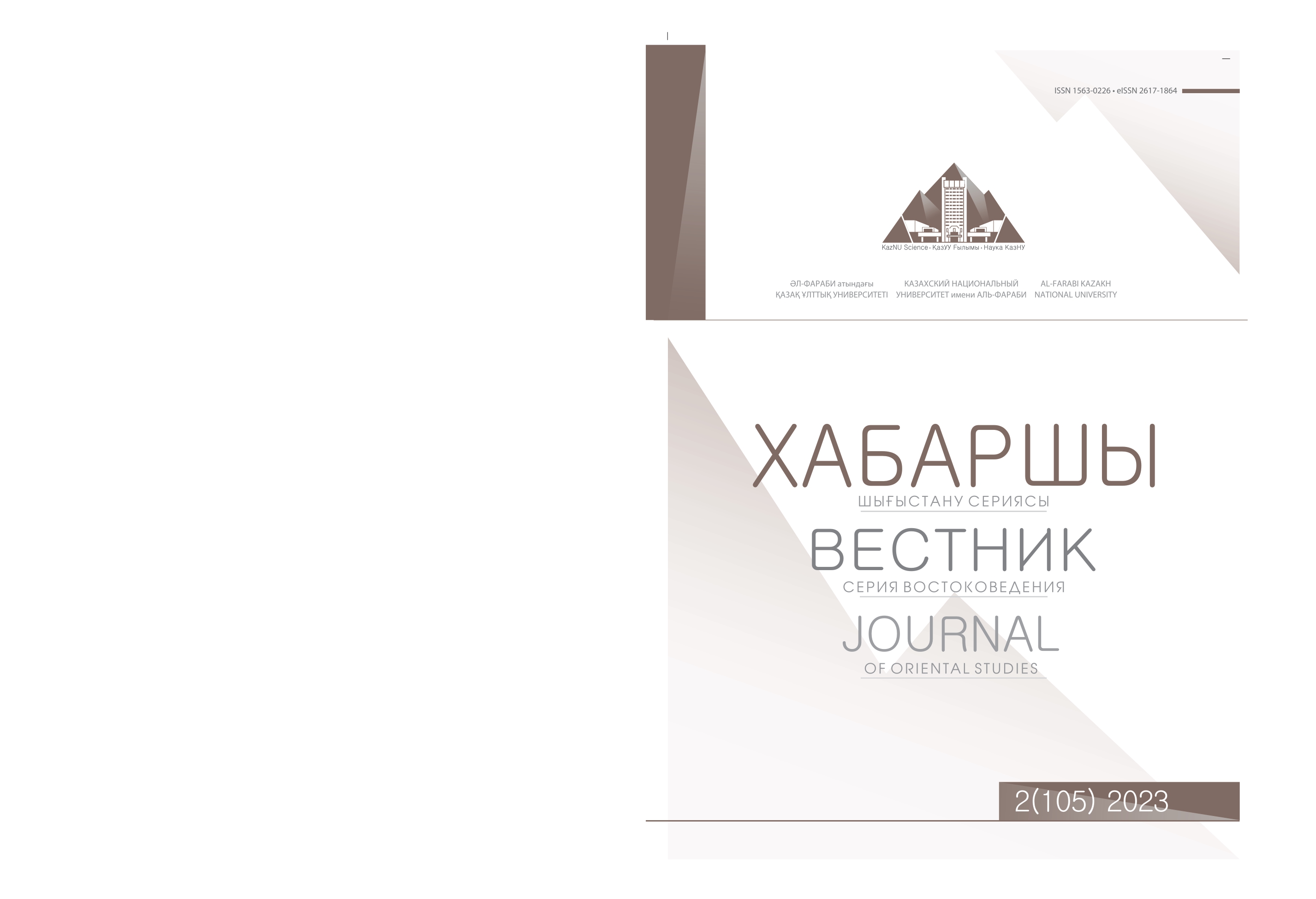The Linguistic Character of Badr ad-Din Ibrahim's Dictionary «Zafanguya wa Jahanpuya»
DOI:
https://doi.org/10.26577/JOS.2023.v105.i2.03Abstract
Modern Orientalists are faced with the task of analyzing data, dictionaries compiled in the early centuries and revealing their new data. In the Delhi Sultanate, which ruled in the northern region of India at the beginning of the XIV century an explanatory dictionary of the Persian language was compiled, containing lexical material of several languages. It was a dictionary by Badr-ad-Din Ibrahim called "Zafanguya wa Jahanpuya" (A dictionary that speaks and studies the world). The study of the composition and structure of the medieval explanatory dictionary, the influence of the Turkic peoples on the languages of other Eastern peoples is an important and urgent problem for modern Orientalists, including Indologists and Turkologists. The contact of Indian languages with other early languages is proof that this language has survived the process of historical development and its study has scientific significance not only for the history of Indian languages, but also for the history of other languages of neighboring peoples.
The purpose of the scientific article is to analyze the language specifics, character, history of studying the dictionary of Badr al-Din Ibrahim "Zafanguya va Jahanpuya" and the Turkic vocabulary in the dictionary. The article analyzes the structure of this dictionary, thematic groups of Turkic words are compiled.














